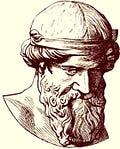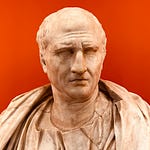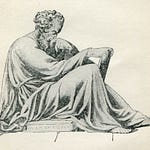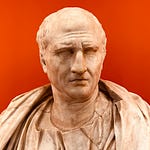“Lysimachus and Melesias have invited us to discuss their sons, because they’re anxious for the boys’ characters to develop in the best way possible. So, what we must do, if we claim we can, is to point out to them teachers who are known firstly to have been upstanding men in their own right and to have cared for many young men’s characters, and secondly to have taught us also. …
I’ll be the first to explain my position, then, Lysimachus and Melesias, and I may say I’ve not had any instruction on the subject, although it’s true that it has been a passionate interest of mine ever since I was a boy. But I’ve never been able to pay fees to the sophists – the only ones who professed to be able to make a good and honest man of me – and I can’t discover the art for myself even now. …
I have in consequence a request to make of you in return, Lysimachus. …
I urge you not to let Laches or Nicias slip away, but to ask them some questions. Say to them, ‘Socrates says he doesn’t understand this subject in the slightest and isn’t competent to decide which of you is right: he hasn’t been taught, or discovered for himself, anything about that kind of thing at all. And now you, Laches and Nicias, are each to tell us if you’ve met anyone who was highly skilled in bringing up the young, and whether you learnt what you know from someone else or discovered it for yourselves. If you learnt it, could you tell us who taught each of you, and who is in the same profession?” (Laches, 186a-186e)














An example of Socratic ignorance